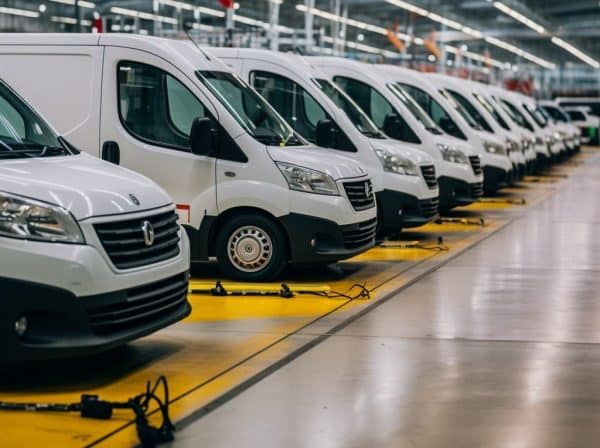
The electrification of fleets is a key step by many firms and organisations towards achieving carbon reduction goals and improving efficiency.
However, many fleet owners and managers face challenges and uncertainties when transitioning to electric vehicles (EVs).
One of the common pitfalls is over-spending on charging infrastructure, which can result from making assumptions without sufficient data and expertise.
Fleets looking at electrification have ‘over-specced’
Now e-fleet solutions VEV has found that a significant proportion of fleets looking at electrification have ‘over-specced’ their charging needs.
The problem is largely down to fleets embarking on electrification without the guidance of a specialist partner.
The transition to EVs involves multiple providers and stakeholders, the firm says, and navigating the complexities requires expert knowledge to consider all factors.
These factors include vehicles, charging infrastructure, energy sources, energy management and operational patterns.
Every EV fleet must have a bespoke proposal, as there is no one-size-fits-all solution.
Assumption that each EV requires a dedicated charger
Vev says that one factor that leads to over-spending on infrastructure is the assumption that each EV requires a dedicated charger.
This adds unnecessary complexity to the transition and wastage during fleet operations.
Another factor is the tendency to design for every eventuality, however rare.
This can result in over-investment in infrastructure that is rarely used or needed.
Determine the charging infrastructure

This data-driven approach considers factors such as operational requirements, energy sources, driver habits, time of day and vehicle capability.
By using this approach, VEV streamlines the transition to electrification and helps to improve cost-effectiveness after the transition in EV fleet operations.
Assumptions in fleet electrification can be a costly mistake
Mike Nakrani, the firm’s chief executive, said: “Making assumptions in the complex realm of fleet electrification can be a costly mistake.
“Our customers ask us to take a strategic role for them, working with a variety of partners across vehicles, charging and energy, to achieve a cost-effective transition to EVs.
“With the correct decision-making tools in place, companies can reap the benefits of the energy transition faster and more cost-effectively.”
As the electrification of fleets becomes increasingly vital for carbon reduction aims and efficiency, VEV is helping managers and fleet owners make informed decisions to shape the future of their operations.

